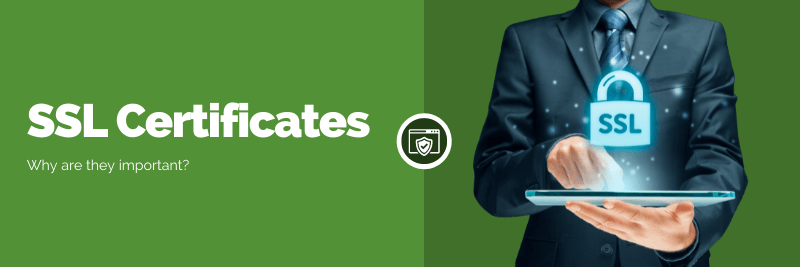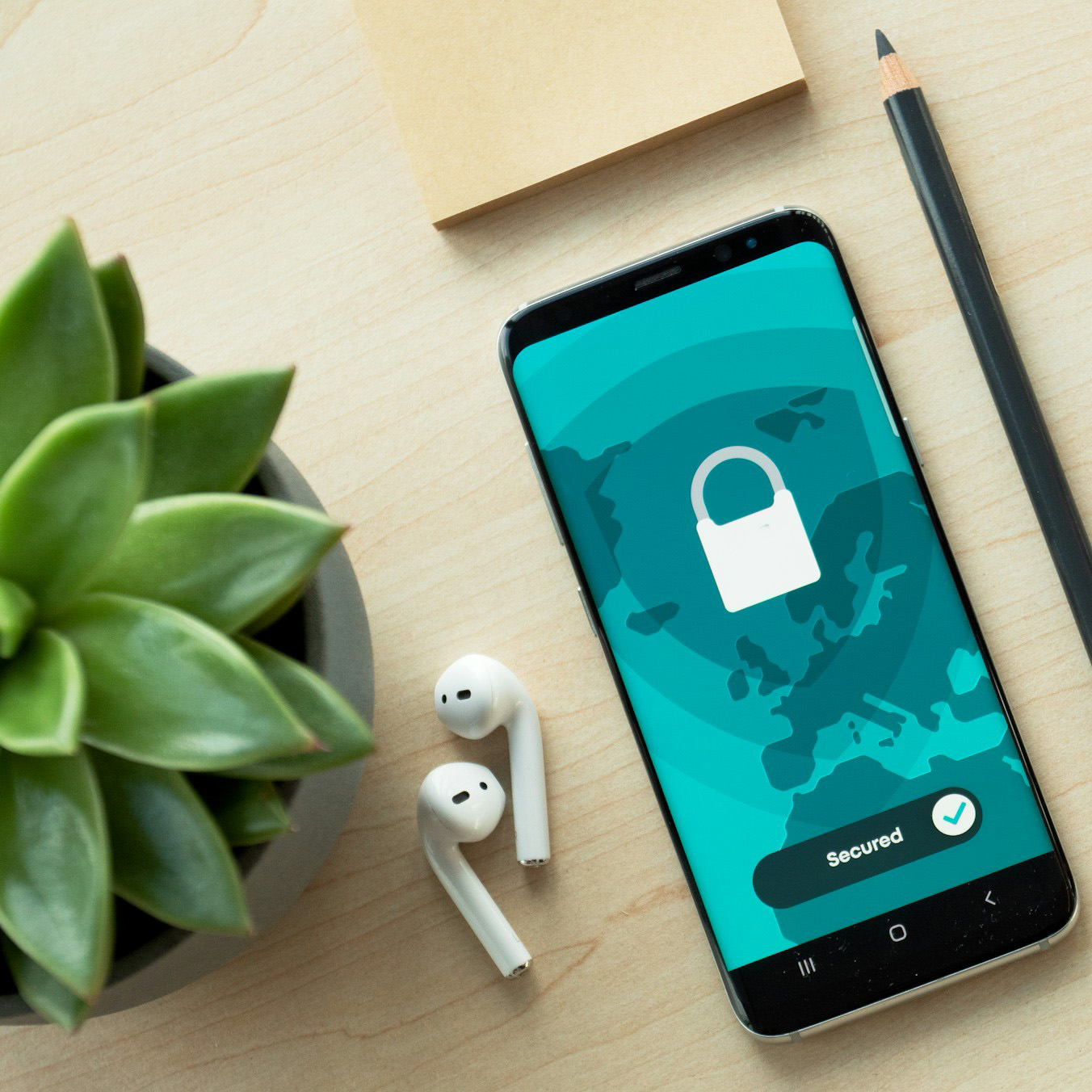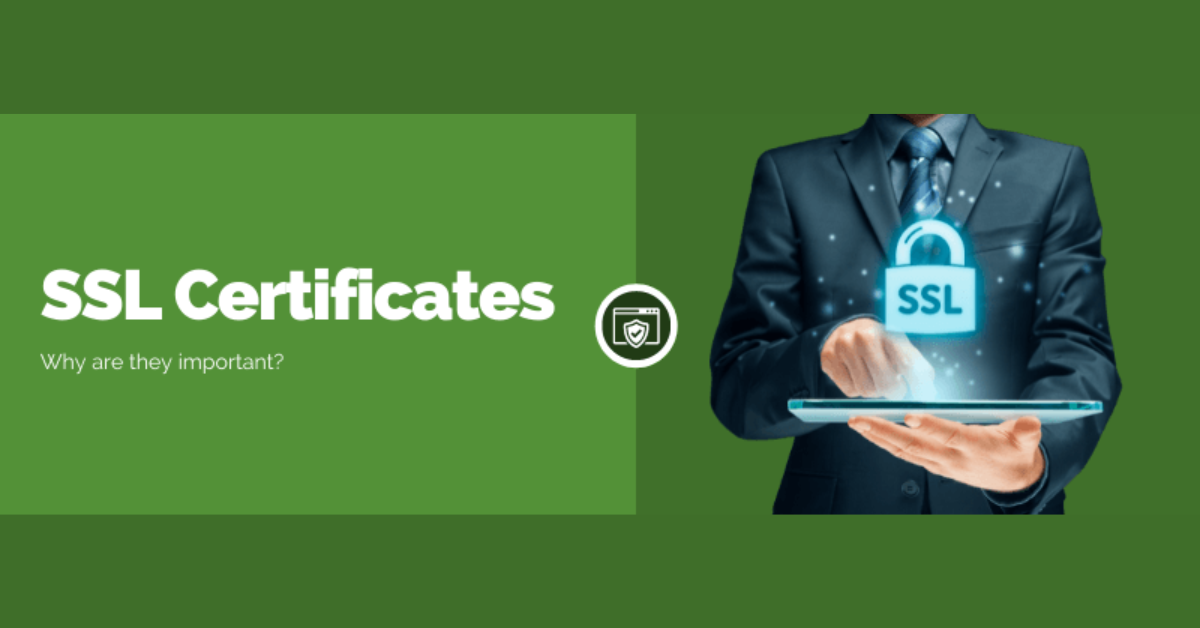
You may have noticed a little closed padlock icon next to the domain name of the website you’re visiting. This little lock displays whether the website you’re seeing is secure via an SSL certificate.
SSL stands for Secure Sockets Layer, a security protocol that creates an encrypted link between a web server and a web browser.
These certificates are needed to keep your data safe, especially regarding customer information and online transactions. This information includes customer data, website data, credit card information, usernames and passwords, and other sensitive details.
In this guide, we’ll explore why SSL certificates are essential, how they work, the different types available, and how to implement them effectively for your website.
Why SSL Certificates Are Essential
About twenty years ago, we relied solely on antivirus software and firewalls to protect both business and home computers.
However, the world of technology has significantly evolved, and with that, we’ve got more moving parts and points of vulnerability than ever before. This shift warrants the implementation of fundamental security measures.
SSL certificates are one such measure. They’re among are among the most rudimentary forms of encryption used by websites to safeguard the flow of data.
They’re even highly recommended by VITA’s Enterprise Architecture Standard. These certificates are serve multiple critical functions that go far beyond basic security including, but not limited to:
- Keeping data secure within your website
- Building and enhances the trust of your visitors
- Preventing your website from being flagged as an insecure site
- Protecting your website from attacks
- Improve site’s search-engine visibility (this is more of a byproduct)
User Trust and Data Protection
It’s imperative that your site not be the cause for a customer receiving malware or having their data compromised.
Not having an SSL puts you and your users at risk, potentially exposing them to man-in-the-middle attacks, data interception, and identity theft.
Without one, any text inputs such as login panels, contact forms, and search bars should be automatically assumed as being read by an attacker.
Modern browsers have responded to these evolving threats by implementing increasingly strict security warnings for unsecured websites.

Google Chrome, Firefox, Safari, and other major browsers now display prominent security warnings when users attempt to enter information on HTTP websites.
These warnings have become more aggressive over time, with some browsers blocking access to certain features entirely on unsecured sites, making SSL certificates not just recommended but essential for basic website functionality.
SEO and Performance Benefits
Search engines have made website security a significant ranking factor in their algorithms. Google officially confirmed that HTTPS is a ranking signal, meaning websites with proper SSL certificates may receive a boost in search engine results pages.
This SEO advantage becomes increasingly important as search engines continue to prioritize user security and experience in their ranking calculations.
Beyond search engine benefits, SSL certificates can actually improve website performance through HTTP/2 compatibility.
Most modern web servers require HTTPS to enable HTTP/2, a newer protocol that provides faster loading times through improved data compression and multiplexing capabilities.
This means that implementing SSL not only secures your website but can also make it faster and more responsive for your visitors.
How SSL Certificates Work (In a Nutshell)
SSL certificates use public key cryptography, which utilizes two keys of long strings of randomly generated numbers called private and public keys. The public key is available in the public domain and can encrypt any message.
A private key is used to both encrypt and decrypt the data and is shared between the sender and receiver of the data.
The start of this communication is called a TLS handshake, in which the two parties open a secure connection and exchange the public key.
Different session keys are used to encrypt communications in each new session. TLS ensures that the website is genuine to keep visitors safe.
HTTP vs HTTPS
A site without an SSL certificate will appear as HTTP:// in its URL, whereas a site with an SSL certificate will show as HTTPS://.
HTTP stands for Hypertext Transfer Protocol and is a protocol for presenting information, such as data, over a network like your website.
The issue with having just HTTP for your site is that anyone monitoring the connection between your users (including admins) and your site could be reading the data being sent and received as the data is being presented in plaintext.
With an SSL, your site will be seen as HTTPS, and instead of seeing plaintext, the attacker will only see a series of random characters.
Obtaining an SSL Certificate

Obtaining an SSL certificate requires working with a Certificate Authority, which is a trusted organization that issues digital certificates after verifying domain ownership.
These authorities maintain strict verification procedures to ensure that certificates are only issued to legitimate domain owners. The verification process can range from simple domain validation to extended validation that includes thorough business verification procedures.
Once obtained, the certificate must be properly installed on your web server, a process that varies depending on your hosting environment and server configuration.
Many web hosting providers, including specialized services, offer assistance with both certificate selection and installation.
The installation process typically involves uploading certificate files to your server and updating server configurations to enable HTTPS connections across your entire website.
Types of SSL Certificates and Pricing
SSL Certificates cost an average of $60 annually, but the prices vary significantly. The average of a Single Domain SSL Certificate (example, www.yourwebsite.com) can be about $5 per year, but if you have first-level sub-domains (example, info.yourwebsite.com), you will need a Wildcard SSL, which costs about $30 per year.
If you have multiple domains (for example, www.yourwebsite.com and www.yoursecondwebsite.com), then you’ll need a Multi-Domain SSL certificate that can be about $60 per year.
Once this certificate is obtained, it needs to be installed onto the web server for the website. A web host, like AISN, can help you determine which SSL certificate you require, as well as install the certificate on your domain(s).
Common Implementation Challenges
Many website owners encounter challenges when first implementing SSL certificates, particularly around mixed content issues where some elements load over HTTP while others use HTTPS.
These mixed content situations can trigger browser warnings and partially negate the security benefits of SSL implementation. Resolving these issues requires systematically updating all internal links, images, scripts, and external resources to use HTTPS protocols.
Certificate renewal represents another common challenge, as SSL certificates typically expire after one to two years. Failing to renew certificates on time results in browser warnings and potential loss of visitor trust.
Many hosting providers now offer automated renewal services, but website owners should still monitor certificate expiration dates and maintain backup renewal procedures to prevent unexpected lapses in security coverage.
Future of Web Security
The world of web security continues evolving, with SSL certificates representing just the foundation of comprehensive website protection.
Emerging technologies like Certificate Transparency logs provide additional verification layers, while new TLS versions offer enhanced security features and improved performance characteristics.
Website owners should stay informed about these developments to maintain optimal security postures. As cyber threats become more sophisticated, the baseline security expectations for websites will likely continue increasing.
What seems like adequate protection today may become insufficient tomorrow, making it essential to work with knowledgeable hosting providers and security professionals who can adapt security measures to meet evolving threats and regulatory requirements.
Secure Your Site With AISN
SSL certificates have transformed from optional security enhancements to absolutely essential components of any professional website.
If you’re looking to secure your website but still have questions, feel free to message us by filling out our contact form below. Don’t worry, we have an SSL certificate, and our site is encrypted to keep your data safe.
AIS Network is a Virginia SWaM-certified leader in cloud enablement, information security, risk management, managed services, and award-winning application development with a broad footprint in the healthcare, government, financial, and other corporate sectors.
Solving complex IT challenges and working digital risk to help clients thrive in an unpredictable world has been our core business for over 28 years.
As the trusted and reliable partner of the Commonwealth of Virginia since 2012, we drive exceptional value through our deep knowledge of state agency data protection, compliance, governance, and internal auditing procedures and controls.
Our unmatched customer experience is rooted in decades of expertise engaging with Forbes- and Fortune-ranked global corporations, government agencies, and other large enterprise clients to deliver these solutions in addition to multi-cloud managed services for the world’s leading platforms, data visualization and analytics, high-security hosting, and consultative reviews.

